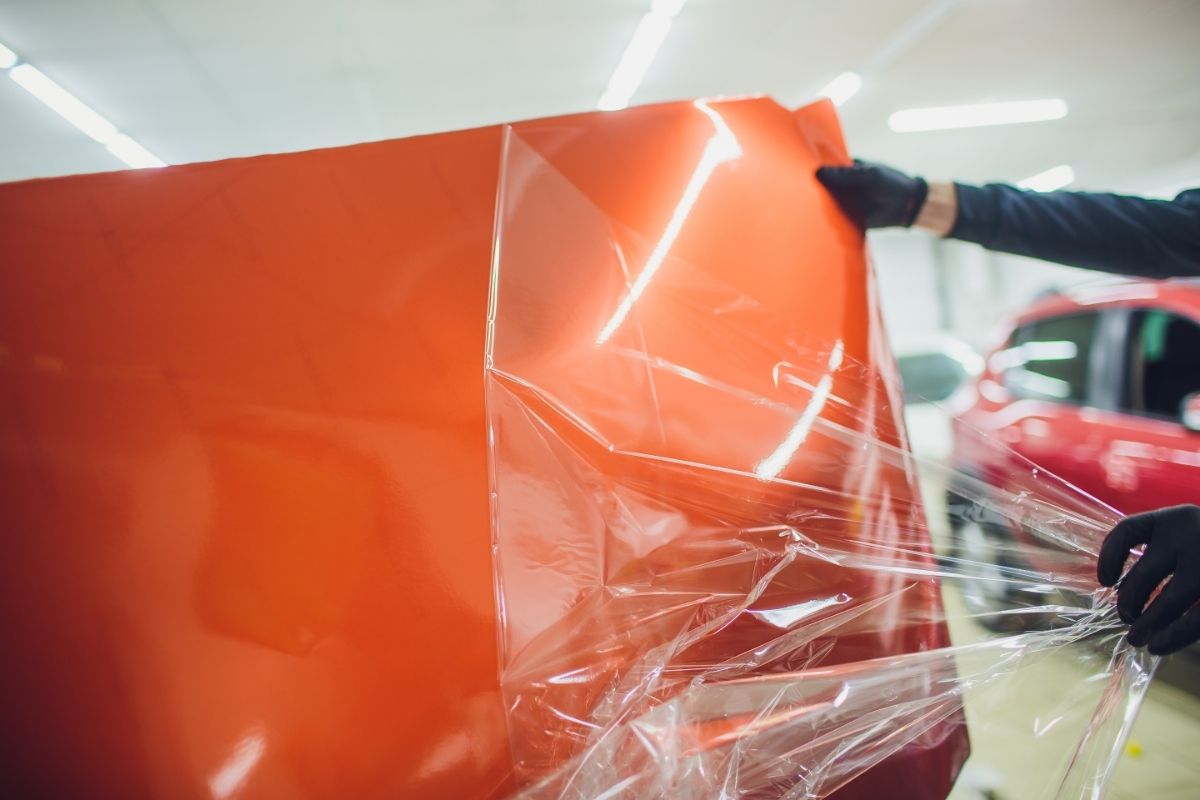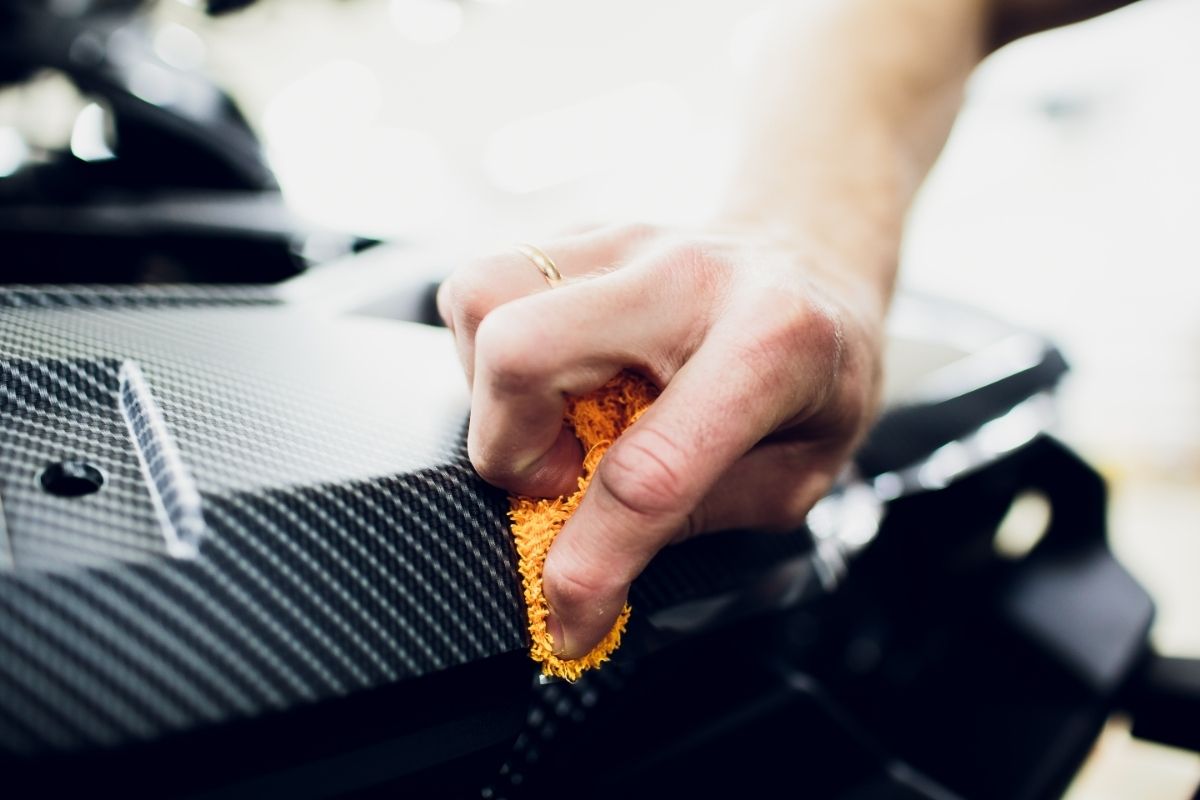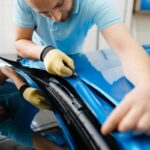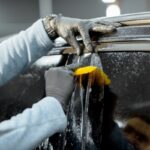Whether you’ve recently purchased a new car or you simply want to give your current car a lease of new life, you might currently be wondering about whether, or not, wrapping the exterior body will affect the paintwork already on top of it.

The answer to this isn’t so clear-cut and can be affected by a variety of different factors, with the main being what type of paint has been used on the body.
If you do wrap your car, then you run the risk of potentially damaging the original body, so, what should you do?
If you’re currently on the fence about wrapping your car but you’re not too sure if you should, rest assured you’ve clicked on the right article.
Below, we are going to be providing you with a breakdown of whether, or not, wrapping your car could affect the original’s paint bodywork.
Read on!
What Is Body Wrapping?
Body wrapping is essentially an application of a protective layer of material that covers the entire exterior bodywork of your vehicle. This can include both the front and rear ends as well as any other areas that may require additional protection.
The most common materials used for body wrapping are vinyl, plastics, and even rubber. They all have their own benefits and drawbacks, although each one does offer something unique.
Vinyls
Vinyl wraps come in many different colors and patterns and are generally applied using heat and pressure. They are also very easy to apply and remove, making them perfect for those who don’t have much time to spend doing up their cars.
However, they are often considered to be less durable than other types of wraps and can easily peel off over time.
Plastics
Plastic wraps are another popular choice amongst people looking to protect their vehicles from scratches and dents. These are usually made from either polyurethane or PVC (polyvinyl chloride) and are available in a wide range of colors and designs.
They are also extremely easy to apply and remove and are highly recommended for DIY enthusiasts. One major drawback however is that they aren’t always long-lasting, meaning that they need to be reapplied every few years.
Rubber
Finally, there are some people out there who prefer to use rubber wraps instead. Rubber wraps are typically more expensive than plastic or vinyl but they are also far more durable and last longer.
They are also far easier to apply and remove than vinyl and plastic wraps, which makes them ideal for those who don’t necessarily have the time to dedicate to applying these themselves.
What Are The Benefits Of Wrapping?

Now that you know exactly what body wrapping is and how it works, let’s take a look at the pros of wrapping your car yourself.
It’s Easy To Apply
As mentioned above, one of the biggest advantages of wrapping your car yourself is that it’s incredibly easy to apply.
You simply follow the instructions provided by your chosen company and you’ll soon find yourself having wrapped your entire vehicle within no time at all.
It’s Cheap
Another huge advantage of wrapping your car yourself, is that it’s cheap. In fact, most companies will provide you with free quotes so that you can get a better idea of how much money you could save by wrapping your car yourself.
Some companies will even cover the cost of the materials required for wrapping your car.
It’s Safe
Another great benefit of wrapping your car yourself rather than hiring someone else to do it, is that it’s safe. When you hire someone to wrap your car, you need to make sure that they are qualified and insured.
If anything were to happen whilst they’re working on your car, then you could end up being liable for any damage caused.
Wrapping your car yourself means that you won’t have to worry about this because you’ll be able to keep an eye on everything that’s happening.
It’s Fun!
The final reason why you should consider wrapping your car yourself is because it’s fun. There’s nothing quite like taking pride in seeing your car finished and ready for the road. Plus, when you wrap your car yourself.
You can personalize it too. This means that you can choose a color scheme that suits you perfectly and add as many custom details as you want.
Can Wrapping A Car Affect Bodywork?
One question that we often receive is whether wrapping a car affects its bodywork. As mentioned earlier, there are two main types of bodywork – metal and fiberglass. Metal bodywork tends to be less susceptible to damage than fiberglass.
However, if you accidentally scratch or dent your car, then you may need to replace the damaged parts.
On the other hand, if you wrap your car yourself then you won’t have to pay for any replacement parts. Instead, you’ll just need to repaint the area where the damage occurred.
With that being said, even though wrapping a car might potentially affect the paint and bodywork, it can also serve as a way to protect it, too. In fact, it actually helps protect the bodywork from scratches and dents.
With that said, wrapping your car doesn’t guarantee perfect results every single time.
Therefore, it’s important to remember to always check what type of paint has been used on your car prior to going ahead with the wrapping, as there are some that are more durable than others.
Final Thoughts
There we have it! Wrapping your car yourself is a great way to customize your car and make it stand out from the rest, however, it can potentially affect the paint already on the bodywork.
For this reason, it’s best to ensure that you’ve checked what kind of paint your car was originally painted with before wrapping it.
Thanks for reading!
If you enjoyed this post, you might enjoy our article on ‘Can Any Gear Knob Fit Any Car?‘.








